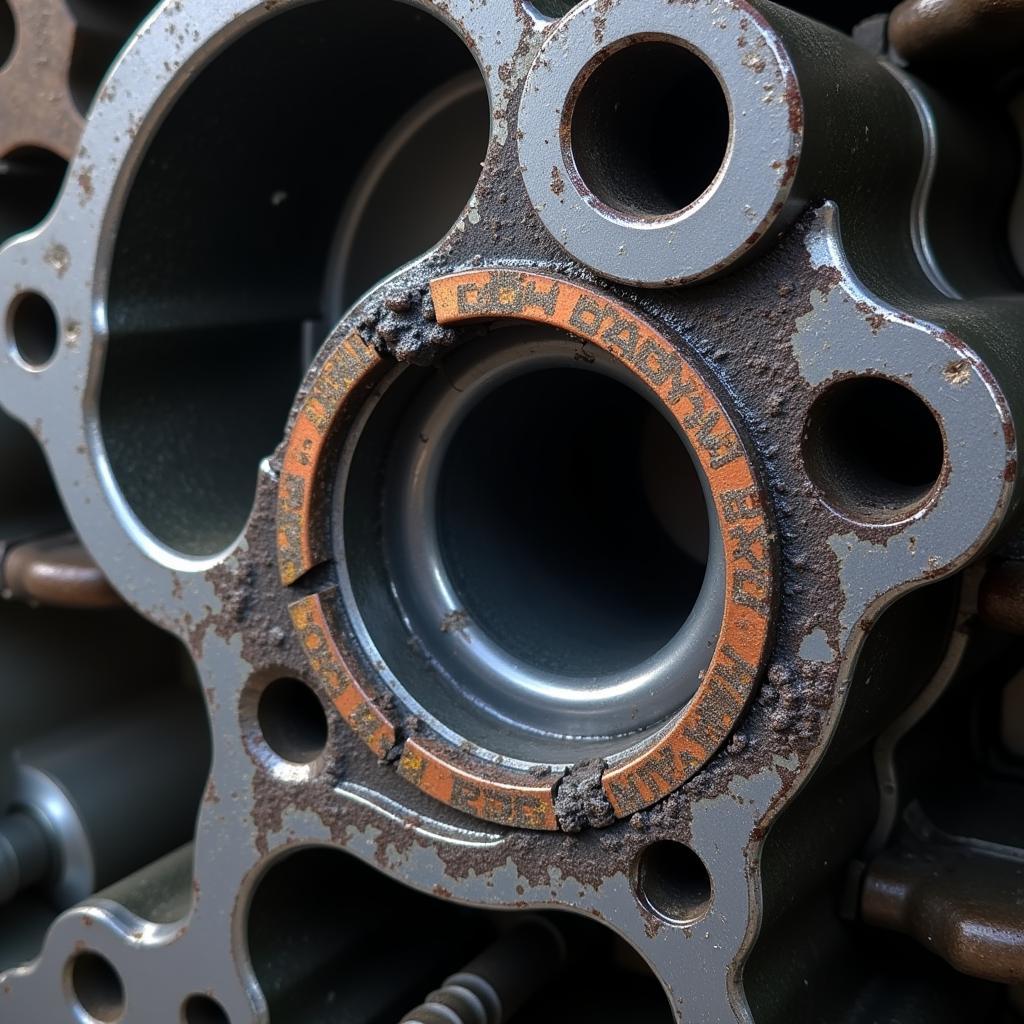If your car is burning oil too fast, you’re likely wondering what problems it can cause. Excessive oil consumption can lead to a range of issues, from reduced engine performance and costly repairs to environmental damage. Understanding the causes and consequences of this problem is crucial for maintaining your vehicle’s health and your wallet’s well-being.
Why is My Car Burning So Much Oil?
Several factors can contribute to high oil consumption. Worn piston rings, valve seals, or a faulty PCV valve are common culprits. A leaking head gasket can also lead to significant oil loss. Driving habits, such as frequent high-speed driving or towing heavy loads, can also exacerbate the problem.
Worn Piston Rings: A Common Culprit
Piston rings are designed to seal the combustion chamber and prevent oil from leaking into it. Over time, these rings can wear down, allowing oil to seep past and burn during combustion. This is often accompanied by blue smoke from the exhaust.
 Worn Piston Rings Causing Oil Burning
Worn Piston Rings Causing Oil Burning
Leaky Valve Seals: Another Potential Issue
Valve seals prevent oil from entering the combustion chamber through the valve guides. If these seals become hardened or cracked, they can allow oil to leak into the cylinders and burn.
What happens if valve seals leak? You might notice blue smoke, especially upon startup or after prolonged idling.
Faulty PCV Valve: A Small Part with Big Implications
The Positive Crankcase Ventilation (PCV) valve regulates the flow of gases within the engine. A malfunctioning PCV valve can disrupt this flow, leading to increased pressure and oil consumption.
What Problems Happen if a Car Burns Oil Too Fast? The Consequences
Burning oil excessively can lead to a cascade of problems. Reduced engine performance is a common symptom. Oil burning in the combustion chamber can create carbon deposits, fouling spark plugs and hindering combustion efficiency. This can lead to decreased power, poor fuel economy, and rough idling.
Catalytic Converter Damage: A Costly Repair
Oil entering the exhaust system can coat and damage the catalytic converter, leading to costly repairs. The catalytic converter is a crucial emissions control component, and its failure can lead to increased pollution and failed emissions tests.
Engine Damage: The Worst-Case Scenario
In severe cases, excessive oil consumption can lead to catastrophic engine damage. Low oil levels can starve the engine of lubrication, causing increased friction and wear on vital components. This can ultimately lead to engine seizure or complete failure.
How to Diagnose and Fix Excessive Oil Burning
Diagnosing the root cause of excessive oil consumption requires a thorough inspection. A compression test can help identify worn piston rings or cylinder wall issues. A leak-down test can pinpoint leaks in the valves or head gasket. Inspecting the PCV valve and checking for leaks around the valve cover and oil pan gaskets are also essential steps.
What to Do If You Suspect Your Car is Burning Oil Too Fast?
If you suspect your car is burning oil too fast, don’t ignore it. Regularly checking your oil level and addressing any leaks promptly is crucial. Consult a qualified mechanic for a proper diagnosis and repair. Early intervention can prevent costly repairs and extend the life of your engine.
Conclusion: Addressing Oil Burning Issues is Crucial
Understanding What Problems Happen If A Car Burns Oil Too Fast is essential for maintaining your vehicle’s health and performance. From reduced engine efficiency and costly repairs to potential environmental damage, the consequences of ignoring this issue can be severe. Regular maintenance, prompt diagnosis, and timely repairs are key to preventing these problems and ensuring the longevity of your engine. Connect with us at AutoTipPro for expert advice and assistance. Our phone number is +1 (641) 206-8880 and our office is located at 500 N St Mary’s St, San Antonio, TX 78205, United States.
FAQ
- How often should I check my oil level?
- What color should my engine oil be?
- Can I use any type of oil in my car?
- What is the difference between conventional and synthetic oil?
- How often should I change my oil?
- What are the signs of a bad PCV valve?
- How much does it cost to fix an oil burning problem?




Leave a Reply